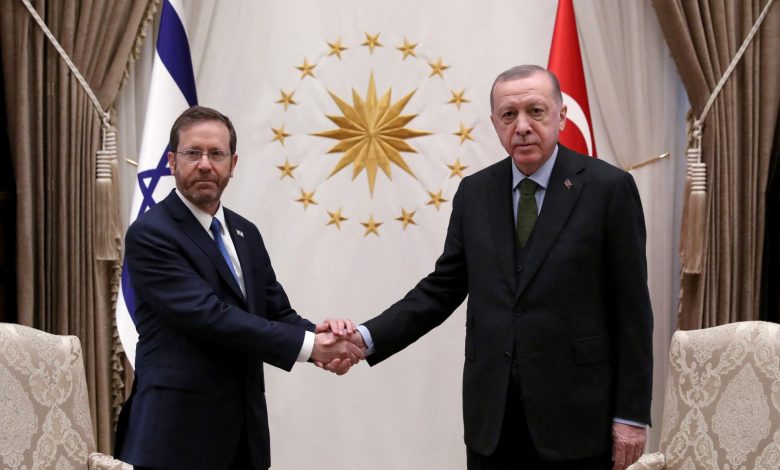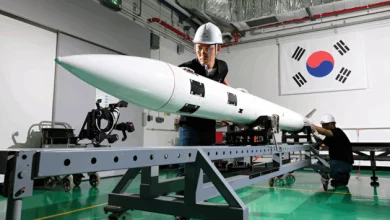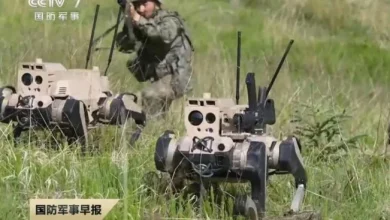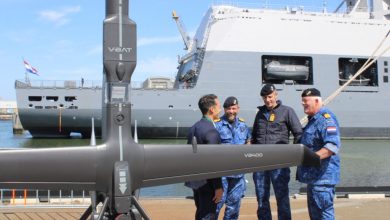Turkey-Israel rapprochement opens coop doors in energy areas

Foreign Minister Çavuşoğlu’s scheduled visit to Israel later this month has the potential to restart a dialogue seeking areas of cooperation and mutually reappoint ambassadors
The new chapter in bilateral relations between Turkey and Israel opens the door for cooperation in many areas from energy to security as well as contributing to stability in the region, experts said while noting certain expectations and demands of the two sides from each other from a realist geopolitical perspective in which every international actor tries to maximize their interests.
In recent months, the two regional powers have sought a rapprochement after nearly a decade of fractured ties, while Turkey has recently been working to improve relations with several countries in the Gulf and Middle East regions, including Saudi Arabia, Egypt and the United Arab Emirates (UAE), as part of a normalization process launched in 2020.
Karel Valansi, a columnist with a weekly Turkish-Jewish newspaper Şalom, described the recent developments as “a new chapter in bilateral relations,” saying that there are many common interests and several issues that could benefit from the cooperation of Turkey and Israel.
“Following (Foreign Minister Mevlüt) Çavuşoğlu’s visit to Israel in May, we can expect to have the ambassadors back. I believe we can also expect a rise in trade volume,” she said.
According to Valansi, restarting a dialogue that seeks areas of cooperation could be the first step. “Also, cultural exchanges and friendly sports tournaments could help change public opinion in both countries. Academic and civil-society engagement could also help strengthen bilateral ties,” she added.
Political Analyst and Researcher Gökhan Çınkara also underlined that Çavuşoğlu’s scheduled visit to Israel later this month will be the most important meeting for the bilateral diplomatic relations to turn to their normal route.
“This visit will also include a technical review opportunity to resolve disputes between Israel and Turkey. Considering that Israeli Foreign Minister Yair Lapid is a powerful political figure, we can say that the steps to be taken in bilateral relations will also be the product of a consensus in Israel’s central politics,” he said.
Çavuşoğlu announced he will visit Israel on May 24 amid increasing efforts between the regional rivals to mend ties, four years after they expelled ambassadors. The top Turkish diplomat said he will travel to Israel and Palestine with Energy Minister Fatih Dönmez on May 24 and would discuss the appointment of ambassadors with his Israeli counterpart during the visit. Energy cooperation is expected to be another topic on the agenda.
Energy cooperation
Turkey and Israel have in recent months been working to mend their long-strained ties, and energy has emerged as a potential area of cooperation. President Recep Tayyip Erdoğan said last month he was “very, very hopeful” for energy cooperation with Israel, and he hoped to discuss the issue with Israeli Prime Minister Naftali Bennett.
The two countries could work together to bring Israeli natural gas to Europe, reviving an idea first discussed more than 20 years ago. Plans for a subsea pipeline from the Eastern Mediterranean to Europe, excluding Turkey, have stalled after the United States expressed its misgivings in January.
Following the crisis in its relations with Turkey during the last decade, Israel created a strategic alliance with Greece and the Greek Cypriot administration, two actors with long-standing acrimony toward Turkey, and in recent years held regular trilateral meetings and conducted joint military drills.
The trio was part of the East Mediterranean Gas Forum established in 2019 with other states, including Egypt and Jordan – without Turkey.
In 2020, Israel, Greece and the Greek Cypriot administration signed the EastMed deal for a pipeline to ship gas from the Eastern Mediterranean to Europe, triggering objections from Ankara.
The U.S. has since also raised concern about the project, citing possible issues over its “commercial viability.”
Turkey’s view is that any project that aims to sideline the rights of Turkey and the Turkish Republic of Northern Cyprus (TRNC) in the Eastern Mediterranean will be unsuccessful.
“As for the energy issue, confidence-building measures are essential. Building back partnership requires time and commitment. During his visit to Turkey, (Israeli President Isaac) Herzog expressed hope that Ankara would once again become a reliable partner that engages in a cooperative, predictable relationship with Israel,” Valansi explained.
Speaking on the normalization steps and possible cooperation on energy, Çavuşoğlu recently said: “We have been defending fair sharing and cooperation in the Eastern Mediterranean since the beginning. Countries that did not approach this cooperation turned to various polarizations, initiatives that excluded Turkey, and blocs were formed. But we have since seen that none of these were practical.”
He reiterated that Erdoğan proposed an Eastern Mediterranean conference to the European Union and said that this proposal has gained importance.
“Everyone saw that t





